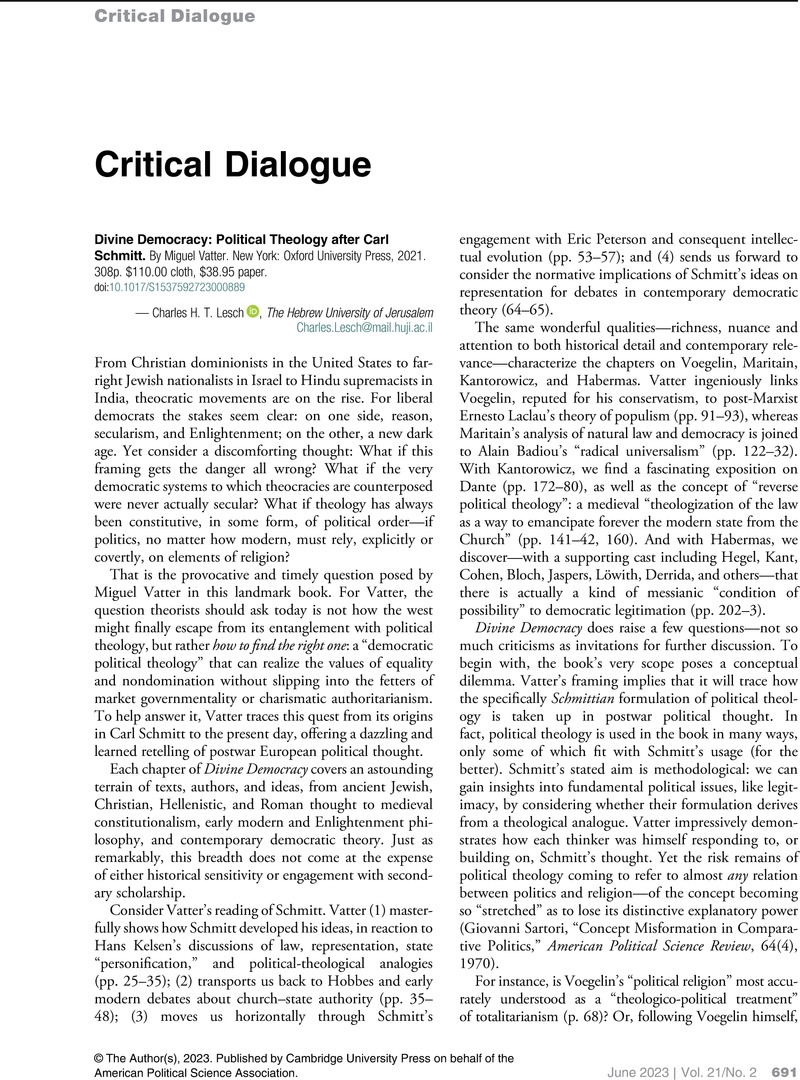No CrossRef data available.
Article contents
Solidarity in a Secular Age: From Political Theology to Jewish Philosophy. By Charles H.T. Lesch. Oxford: Oxford University Press, 2022. 280p. $74.00 cloth.
Review products
Solidarity in a Secular Age: From Political Theology to Jewish Philosophy. By Charles H.T. Lesch. Oxford: Oxford University Press, 2022. 280p. $74.00 cloth.
Published online by Cambridge University Press: 01 June 2023
Abstract
An abstract is not available for this content so a preview has been provided. Please use the Get access link above for information on how to access this content.

- Type
- Critical Dialogue
- Information
- Perspectives on Politics , Volume 21 , Issue 2: Special Section: Green Political Science , June 2023 , pp. 694 - 696
- Copyright
- © The Author(s), 2023. Published by Cambridge University Press on behalf of the American Political Science Association


